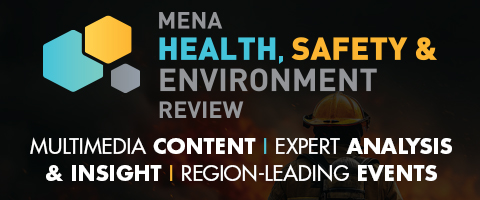Energy companies know that a solid safety record is as good for business as any free flowing oil well
In such a hazardous working environment, health and safety always comes first in the oil and gas sector. At least that’s the idea.
Unfortunately, no one can prepare for all eventualities and, invariably, accidents do happen. Sometimes these have catastrophic and deadly consequences. Perhaps the most infamous incident of recent times is the Deepwater Horizon tragedy in the US Gulf of Mexico. Here, a technical blowout triggered an explosion, killing 11 workers and injuring 16 others, and resulting in a major oil spill that operator BP struggled for weeks to get under control.
But no region is immune. In the Middle East, the world’s biggest oil and gas producing region, the stakes are just as high.
Yes, there have also been serious mishaps too – refinery fires, explosions and lives lost – but given the amount of gas and liquids that are produced every single year (every day, even) such accidents are a rarity. Among the better known incidents are the series of fires at Kuwait’s refineries through the years, though these have been well spaced.
In 2000, three workers were killed and dozens injured at the Mina Al-Ahmadi refinery following a blast at the site. More worryingly, perhaps, the country’s refineries have seen a succession of smaller blazes in recent years.
Luckily there were no casualties reported in 2013 after the Mina Al-Ahmadi fire team activated the refinery’s emergency response plan, though some workers were injured in a separate incident the following year. And this year, Kuwait National Petroleum Corporation (KNPC) said it had also contained another small fire at one of the Al-Ahmadi cracker units, and at another site, a delayed coker unit at its Mina Abdulla refinery.
The need for vigilance
Still, given the volumes of oil and gas products that flow out of the Gulf and the Middle East regional generally, each and every day, the overall safety record is impressive. The reality is that health and safety performance is as fundamental to business survival as getting the oil and gas out of the ground is in the first place.
In May, an Abu Dhabi process safety conference attracted nearly 1,000 delegates, underlining the strong interest in this behind-the-scenes industry niche. And, announcing his company’s latest results the same month, Edward LaFehr, chief operating officer of Abu Dhabi National Energy Company (TAQA), cited a “continued strong safety performance” alongside key benchmarks like operating performance and costs.
As BP discovered in the Gulf of Mexico, it’s only when things go wrong that the true significance of health and safety becomes apparent. As a result, a whole industry has evolved to meet the needs of operators and other service companies, looking for safety solutions, training and know how.
As well as developing new and innovative health and safety products and technology for the industry, this also means delivering expert courses in anything from fire safety to first aid. There are numerous specialist safety courses available too such as helicopter underwater escape and other offshore trainings unique to the environment.
Dedicated facilities are now available to industry to help such as the Gulf Technical and Safety Training Centre in Mussafah, Abu Dhabi. The largest such institute in the Middle East, founded in 1993, it is a key strategic training partner to the major oil companies both within the UAE and outside. It also has purpose-built branches in other key energy locations such as Egypt and Saudi Arabia.
Some of the facilities available in the Abu Dhabi complex include simulators, a large fire testing area, swimming pools and a platform for fast rescue boat training. And, for that real-life oil field experience, it also boasts a 1,700 feet deep training well for drilling, workover, wireline, coiled tubing operations, and completion operations.
Prevention better than cure
While emergency response plans, helicopter escapes and offshore trainings are all vital to prepare oil workers for all eventualities, the emphasis is always on prevention. Again, these training institutions make an important contribution – but one that goes largely unrecognised – to the smooth and safe functioning of the overall energy supply chain.
As do the many private corporations that partner with the oil operators to underpin safety on all levels across all sites. This applies to all strands of the industry, upstream and downstream, where equipment and technology is routinely and robustly tested without fail. In the field, all of these components and products are bolted together and must deliver reliably, without fail, for years, under real world conditions.
Well-known experts here include Intertek, which offers testing, inspection and certification services to the industry, as well as consulting, technical, engineering and related services. At Houston’s Offshore Technology Conference in May it unveiled a new suite of services including functional safety and expanded hazard areas training.
The company, which works across the refining, petrochemical, power, and oil and gas industries, both in the Middle East and in all other territories, knows what it’s talking about. Its US-based Asset Integrity Management (AIM) in-service inspection group clocked up four million work hours this year without any lost-time accident or injury.
“Safety is our job,” said Gerhard Abel, Intertek’s US AIM director. “Everything we do revolves around assets being safe in operation, safe to people living in the vicinity and people working in those assets, safe to the environment, and our customers count on assets being safe and reliable for continued operation. Continuously performing in a safe manner ourselves to reach these goals is our first priority and non-negotiable.”
As for all industry players, vigilance is the watchword. Together with open communication and adherence to strict standards and any relevant external oversight organisations, everyone knows that prevention is always better than cure.
Martin Clark





